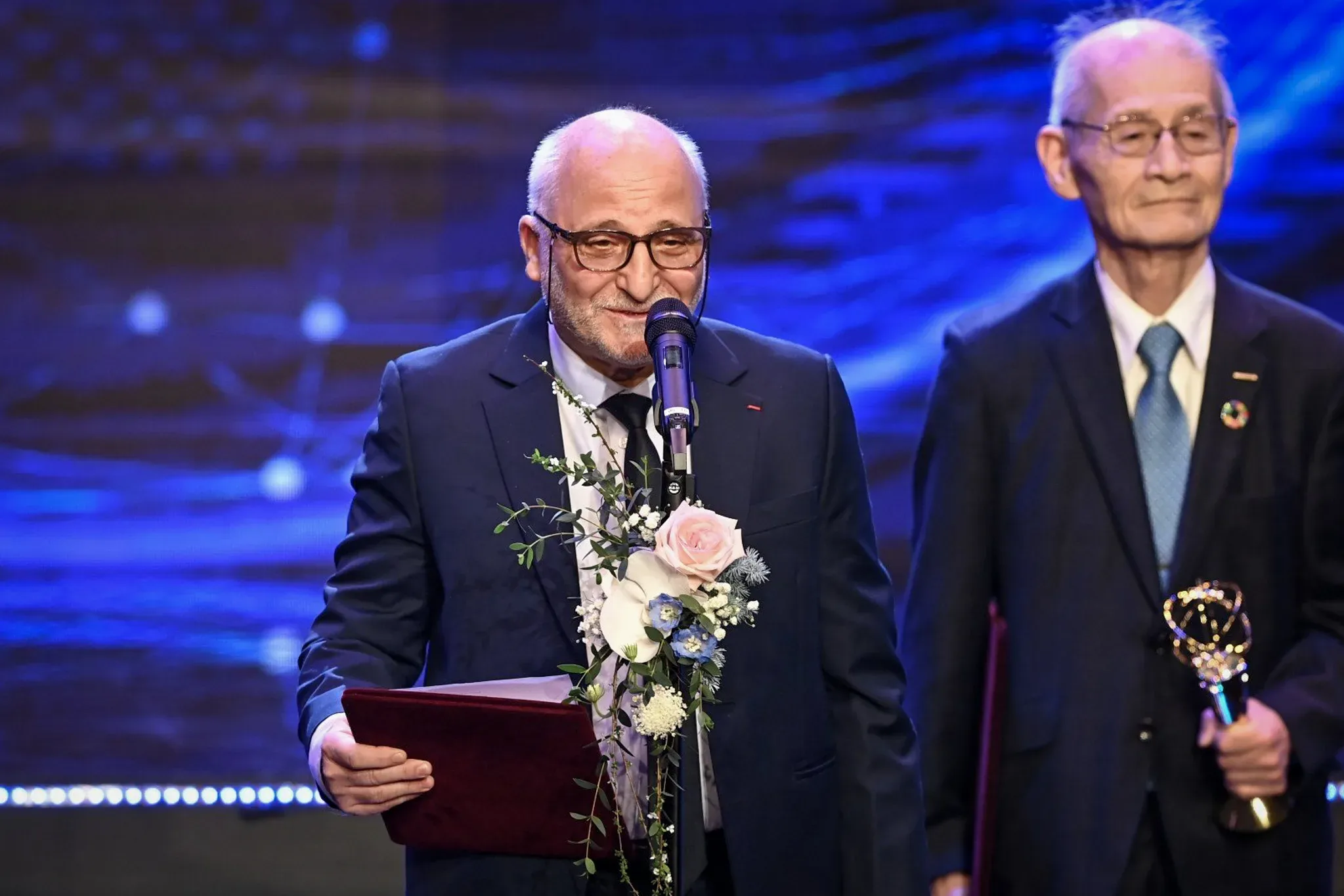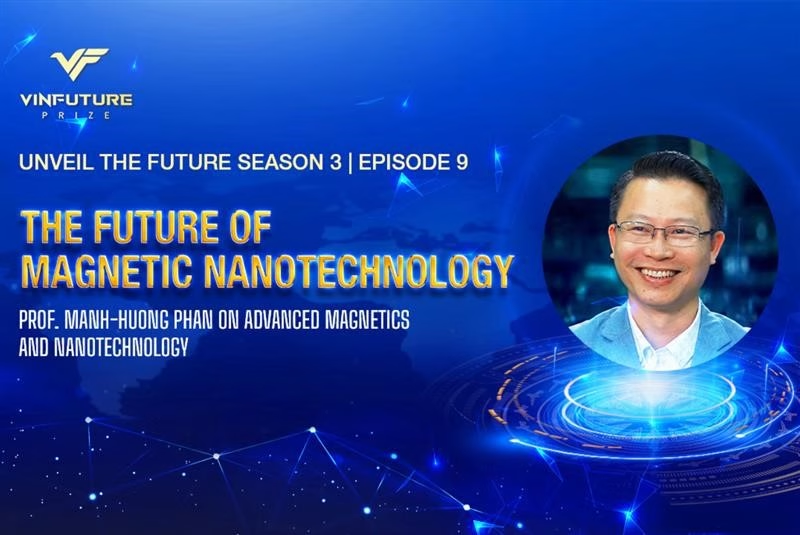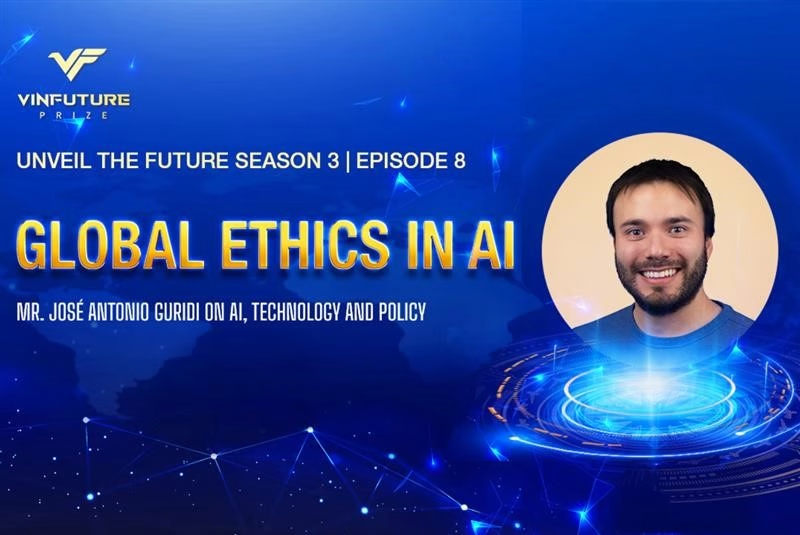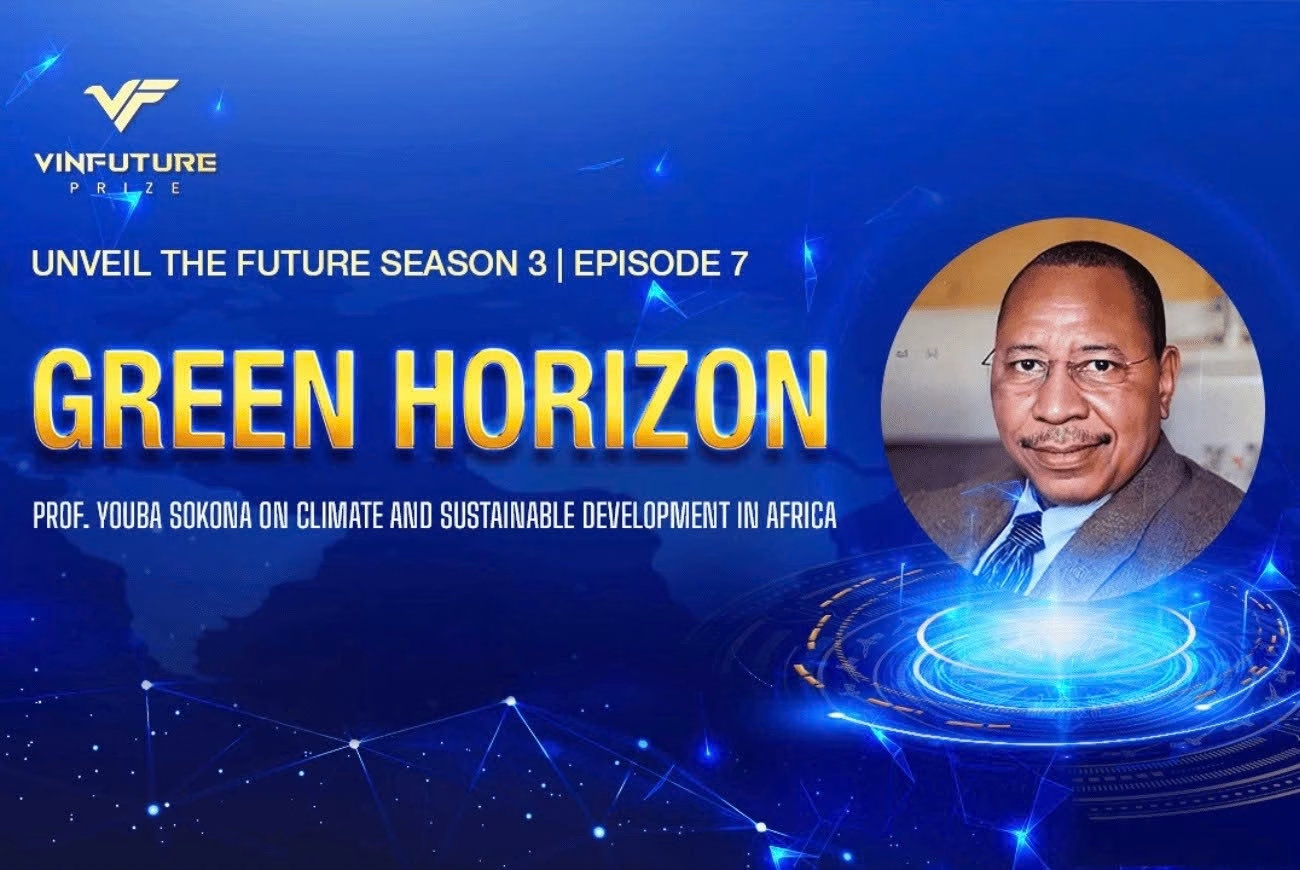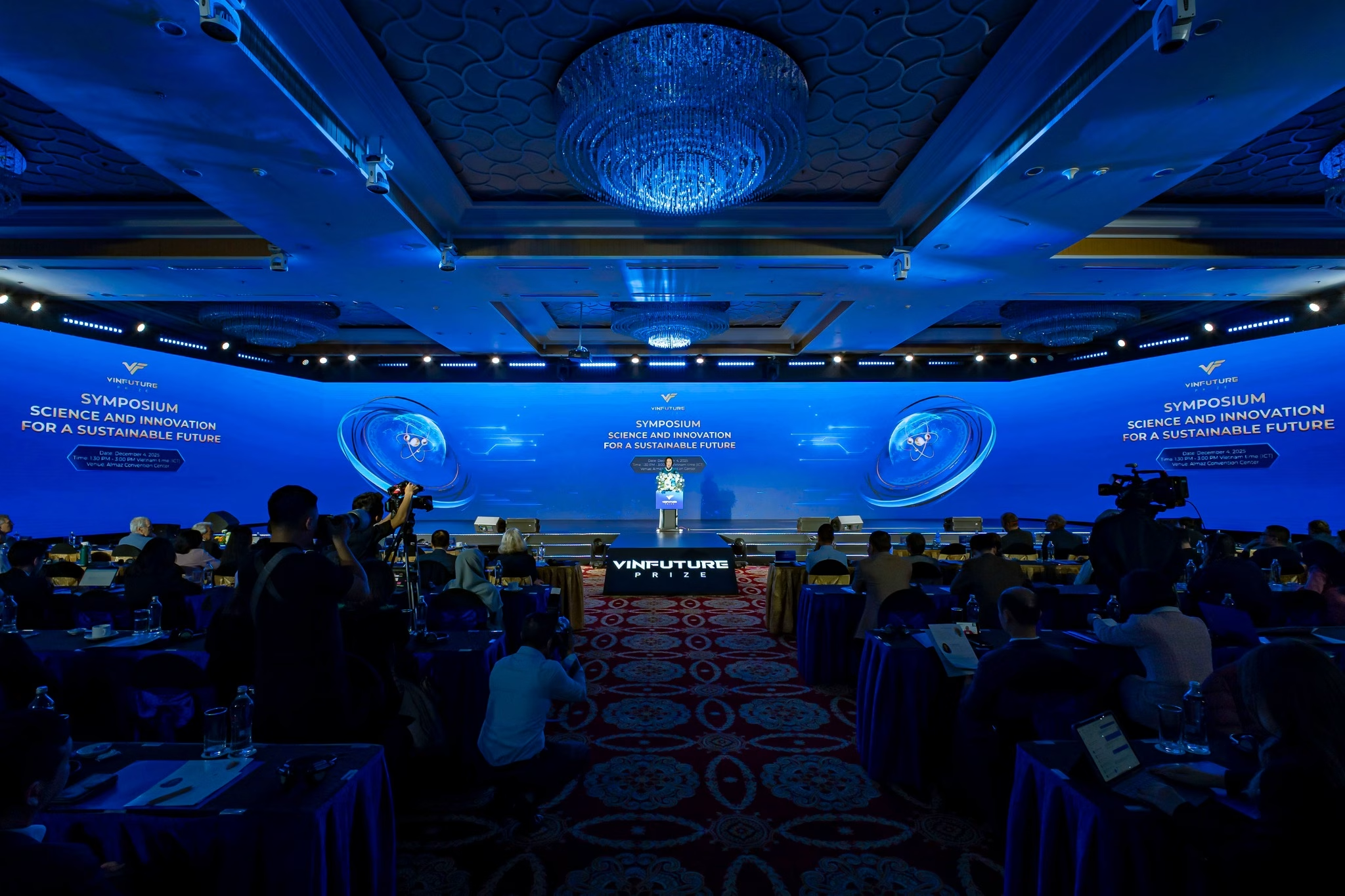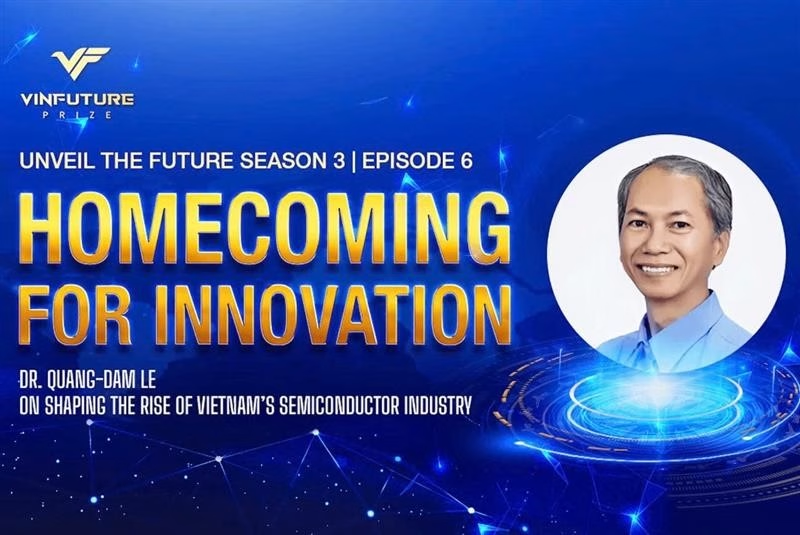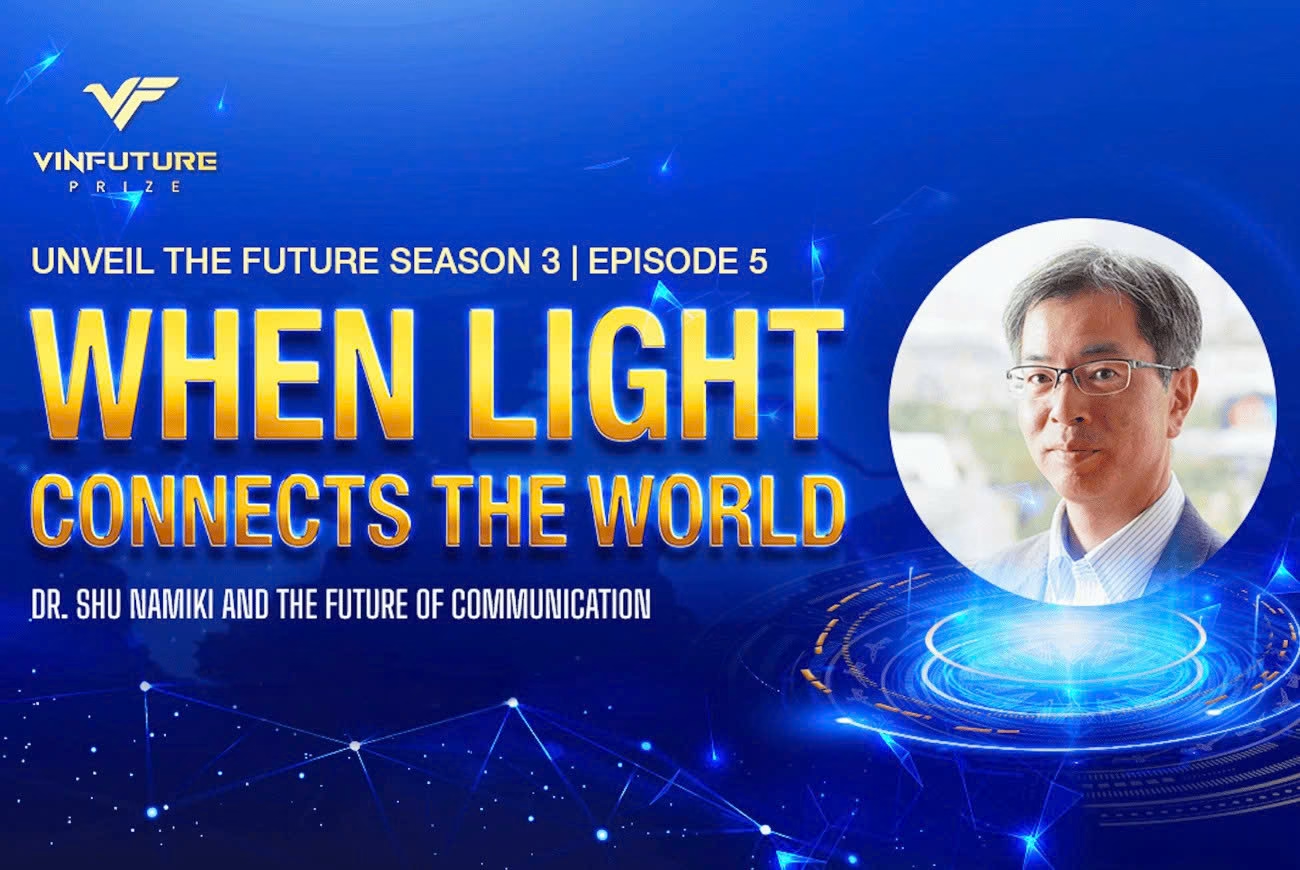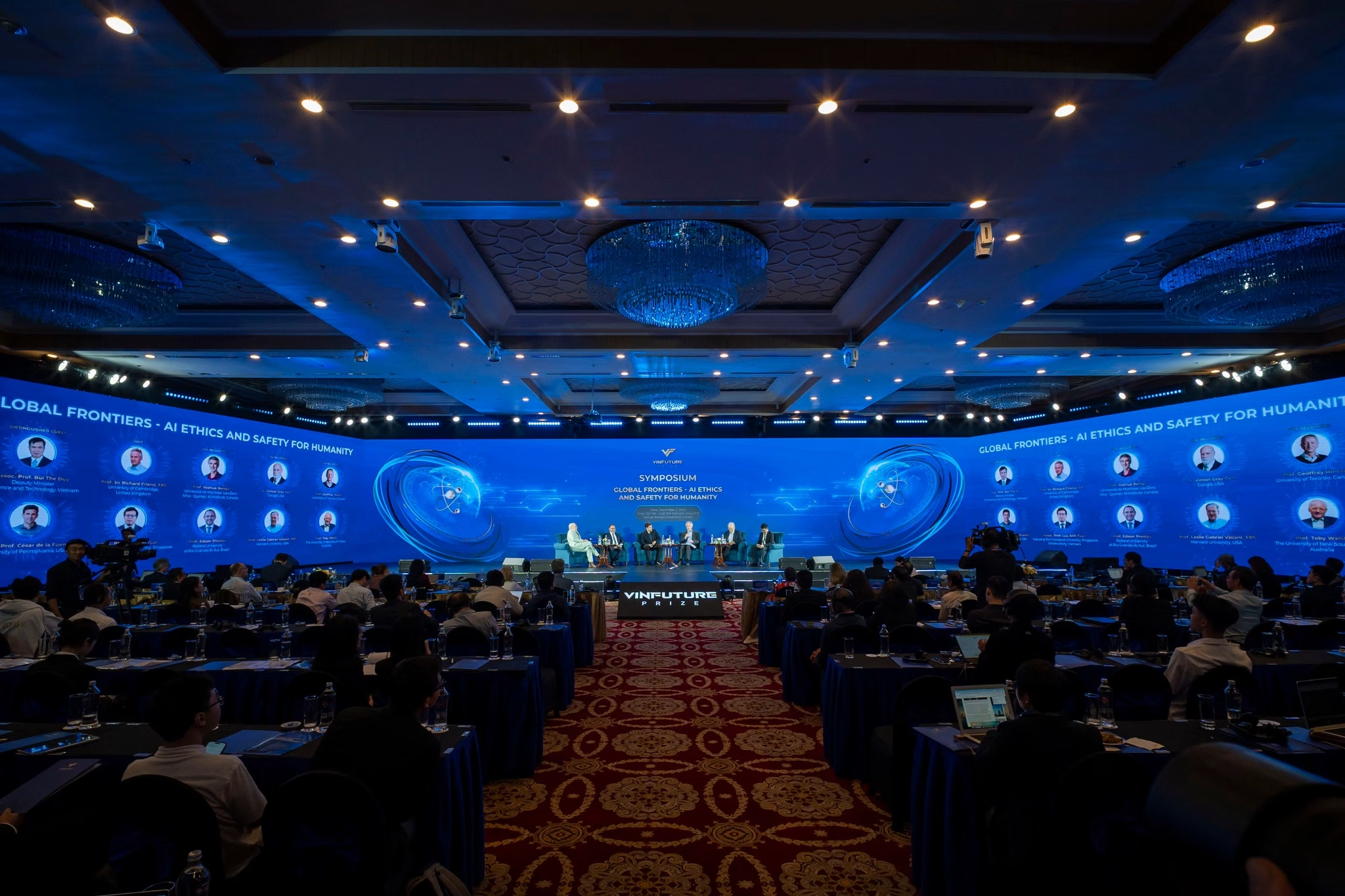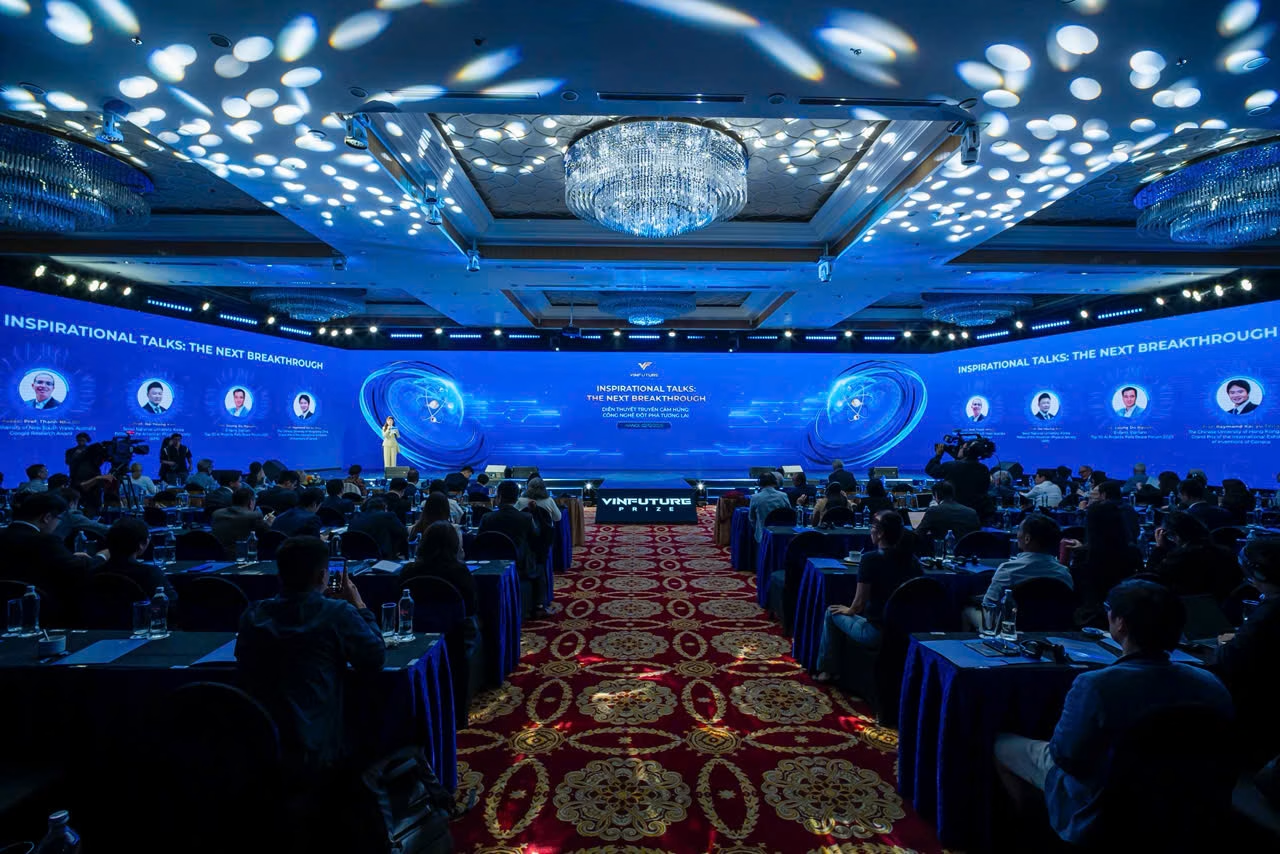In the debut episode, we’re privileged to hear from Professor Rachid Yazami, one of the Laureates of the 2023 VinFuture Grand Prize, as he recounts his captivating voyage through the realm of science. From his humble beginnings in Morocco to his present-day accomplishments, Professor Yazami offers a candid glimpse into the trials and triumphs that have marked his scientific odyssey. Reflecting on his formative years and the challenges he encountered along the way, he paints a vivid picture of resilience and determination.
In this inaugural episode, you can expect the following highlights:
- Yazami’s first hand insights and experiences with the VinFuture Prize.
- Yazami assessment of the evolving reputation and profound impact of the VinFuture Prize on the global science and technology landscape.
- Yazami’s personal evolution in the field of science.
- Yazami’s sage advice, tailored specifically for the next generation of aspiring scientists.
MC: I’m eager to discover how this accolade has reshaped your life, hopefully for the better. Though it’s only been a short while since you received the award officially, I’m keen to hear about any positive impacts it may have brought.
Prof. Yazami: Thank you so much for giving me this opportunity to exchange with you and share my impressions about the VinFuture Prize and my visit to Vietnam. It was a huge honor and a big surprise that I received the Grand Prize. I’m always very humbled. When these kinds of events happen, “why me?” I ask myself. By the way, it was really something absolutely important and life-changing for the rest of my career in science and my journey in science. And reciprocally, what happens is that it has been followed mostly by my Moroccan friends and family, and my network with others on social media and so on. So it’s made the VinFuture Prize and Vietnam very popular in Morocco. I’m so pleased that actually this prize brought a kind of bridge between Vietnam and Morocco and also in France, of course, because I am also a citizen of France.
I’m still working in my lab, and the impact is that I have now more funds, more money to do what I want to do, in the social things in Morocco, especially. I have just started to sponsor some social activities for people who are in need, either medical needs or health issues, education, and so on. That’s another very positive impact.
MC: Particularly, inspiring and empowering the next generation of researchers is crucial for fostering ongoing scientific progress. With that in mind, we’re curious: what are your plans on supporting young scientists or collaborating on potential research ventures?
Prof. Yazami: I have been doing it even before the VinFuture Prize, and I’m continuing to do it now that I have more means. And of course, one of the effects of the VinFuture Prize is that almost every week, I am receiving an invitation to give a lecture somewhere in the world. I’ve insisted on visiting universities and meeting with young people. And because for young people, being an African – myself, although I’m not black, I’m white but I’m African – it’s an inspiration to tell them, “Yes, you can. You can do it yourself. Believe in yourself, work hard, be creative.”
So this is the message I want to share with young people everywhere I go. And it’s been, of course, an incredible journey in science and technology. I only feel happy when I give, not when I receive. So it’s better to give what you can.
MC: April 21 marks World Creativity and Innovation Day, celebrating scientific research and fostering innovation amidst global challenges. We’re eager to hear your thoughts on how the VinFuture Prize contributes to global innovation and its impact on scientists and the international scientific community.
Prof. Yazami: I’m in the process of nominating for the 2024 VinFuture Prize (VinFuture’s note: The nomination portal for the 2024 VinFuture Prize closed at 02:00 PM, April 17th, 2024, (Vietnam time, GMT+7)). From a country like Vietnam, VinFuture Prize is absolutely incredible because you expect to hear from Japan, from the United States, from even China, and so on – big countries that have this long-term tradition in science and technology. The selection of the laureates is done very professionally, at the level of the Nobel Prize to me. In the end, the choices are really very right, not only the Grand Prize, but also other categories.
I’m sure that the 2024 VinFuture Prize will attract maybe double the number of candidates than 2023 because this prize has become more and more popular, prestigious, and of course, many scientists will dream to have it. My contributions after I received the Grand Prize of the VinFuture Prize are to help the organization by nominating very high-level engineers and scientists.
To be honest with you, I am now advocating to have a kind of like the VinFuture Prize in Morocco. I would like to create it and maybe go to African people or something. I’m discussing with high-level people on how we can create this kind of prize because we have an organization that has a lot of money. Okay, they have a lot of money, and they have a foundation. And I’m talking to that foundation on how we can create an event (the award ceremony) like what the Vietnamese have done successfully. So it puts Morocco on the map of the world? Of course, that’s very important.
MC: Could you enlighten us on what inspired you personally, or share any pivotal moments that directed your focus towards this specific area of research?
Prof. Yazami: I actually had a strong interest in science from a very early age. A significant event happened in my life around age 11. One of my teachers pointed at me and declared, “Rachid, you will be a chemist!” Ten years later, I found myself admitted to the Grenoble Institute of Technology in France. I received my engineering degree in 1978, and one year later, at the age of 26, I discovered the graphite anode. I mentioned this during my acceptance speech for the VinFuture Prize.
There are actually two steps to what is now the graphite anode in the lithium-ion battery, which is my contribution to battery technology. First, this topic was outside the scope of my Ph.D. project. My advisor asked me to work on cathode materials, not anodes.
I thought to myself, “Without questioning him, why should I start with something complicated? Can’t we approach this in a simpler way?” So, I took only graphite and began trying to intercalate lithium inside it.
For the first six months, it yielded no results. It was a constant “no,” with no success. Then, by chance, a classmate working on a different project involving solid-state electrolytes passed me one of his solid-state membranes. Only when I used this membrane was I able to intercalate lithium into graphite within a battery, in an electrochemical cell.
That was the first time. When I saw the graphite change color from black to gold – the gold color signifying lithium integration into the graphite – I called over everyone in my group, my professors, and so on. It was exhilarating, an incredible event. It felt like alchemy, converting black to gold. It was an absolutely unforgettable day in my life.
It took about a month to realize that this discovery might be applicable to rechargeable batteries. Initially, for us, it was just scientific curiosity – we’d achieved something no one had done before. Then, the realization dawned: it was an invention, not just a discovery.
It’s a long story about how we missed the patent opportunity. I sent a report to the Patent Office in Paris, which at that time handled patents for all national universities and institutions. The gentleman there thought it was fantastic and said they would file a patent. However, he had second thoughts. He reasoned that since we were an academic institution, not industry-focused, the discovery/invention would be more interesting for a company.
He sent a document with a signed non-disclosure agreement to a major French company that needed batteries at the time, primarily non-rechargeable but also working on rechargeable models. A week later, we received a response that basically said, “This discovery is very interesting for academic folks, but we don’t see any industrial applications.” So, no patent was filed.
And then it took another five years, in 1985, when the Japanese started to file patents on the graphite anode, and so on. And then everything went to Japan. The first rechargeable battery was produced in Japan prototype by Dr. Akira Yoshino (also one of the 2023 VinFuture Grand Prize Laureates). That was the beginning of the big adventure of turbine batteries.
They were just to tell you some disappointments because we, as a national university, our salary, everything we have in the lab, is paid by the taxpayers, the French by taxpayers. And we want to have a return on investment. They invest in us, and we want to see a return investment. If this company in France said, “Oh, we think it may be improved, we have no evidence, but maybe it’s interesting, let’s file a patent that doesn’t cost as much money.” I think it will have brought something between $100-150 billion. Only the invention of the graphite anode. Because no other work in anode has been discovered since 1978.
And now, there is no replacement for the graphite anode. It’s the only anode that works really very well in lithium-ion batteries. Can you imagine? Since 1991, and now, more than 34 years ago, the amount of dollars that has been generated by this discovery is close to 200 million billion dollars revenue for the industry. If we could have royalties from the patents, I think I would be a billionaire today!
Anyway, the good thing is that even though the patent wasn’t filed in France, many of my colleagues, scientists, and professors – including a Japanese professor – have said, “Rachid, this anode should be called the Yagami anode,” after me.
Of course, I’ve been recognized by other organizations as well. As a scientist, I’m not complaining, but as a citizen of France and Morocco, I would have liked this discovery to have benefited the people more directly. In a way, it does because now everyone has these devices – cell phones – and they all have my anode inside. It’s a privilege to see billions of people using my discovery every day.
MC: In your assessment, how do you perceive the VinFuture Foundation’s impact on advancing Vietnam’s journey towards sustainable growth, particularly in the realm of green energy development and innovation?
Prof. Yazami: The VinFuture Foundation has many committees with a chairman leading the effort. I think the fact that recognizes the importance of science – with this prize being just one aspect – shows they value scientific activity across different areas. The international prize committees are very high level. I met most of the members in December – wow! I was amazed! Some I hadn’t even heard of before, and it was great to sit down and see how they work together as a team. It’s a lot of work, I can tell you. They process thousands of nominations, going through so many stages until they pick the VinFuture Prize laureates.
This committee, even with its high-level scientists, benefits Vietnam. They’re not just picking winners; they’re likely advising and giving insights that are important for Vietnam’s future. So this is excellent, and I cannot find a better word than “Bravo, Vietnam!”
MC: What advice would you offer not only to young scientists, who will carry forward your legacy, but particularly to those aspiring to follow their passion for research and creativity in your field?
Prof. Yazami: Absolutely, the world has transformed because of computers. When I began my research, computers were scarce, or very basic with limited memory. Now, it’s a revolution. Everyone’s talking about artificial intelligence and how it will change the world.
For young people, success comes from a multidisciplinary approach. You can’t just be a chemist, physicist, or biologist. You also need knowledge of other scientific and engineering fields and how to combine them.
Additionally, try your best to think outside the box, because this is important. Maybe they’re crazy sometimes, but they are very creative. I like crazy people, sometimes they think outside the box, why not?
Overall, for young people in any field, persistence is key. You have to work hard, be creative, and read extensively – not just science, but also literature, poetry, and other subjects. Travel, meet people, and explore different cultures. An open mind is essential for discovery.
